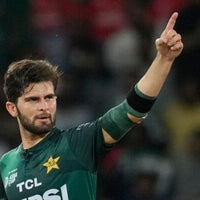In a recent podcast, India’s cricket captain, Rohit Sharma, expressed his enthusiasm for the prospect of a Test series against Pakistan at a neutral venue, stating, “Yeah, I would love to. It would be a great contest.” These words resonated deeply with me, igniting a renewed sense of excitement and anticipation within my spirit.
Rohit’s statement sparked vivid imagery in my mind – the iconic MCG packed with over 90,000 passionate fans, the electrifying atmosphere as Shaheen Shah Afridi charges in to bowl against Rohit Sharma, the melodious commentary of Harsha Bhogle, and the insightful analysis of Sunil Gavaskar. It’s a scene I’ve longed to witness, surrounded by fellow cricket enthusiasts, engaging in lively discussions and sharing the thrill of the game.
However, this vision remains a fantasy, overshadowed by the lingering specter of mistrust between our two nations. The path to such a monumental event is obstructed by deep-rooted tensions that must be overcome before progress can be made. Despite these challenges, there are hopeful signs emerging from both sides of the border.
Arun Dhumal, the chairman of the IPL, hinted at the possibility of including Pakistani players in the league in the future, signaling a potential thaw in cricketing relations. Moreover, the recent election of a new government in Pakistan led by the Sharif family has raised optimism for improved diplomatic ties, with Prime Minister Shahbaz Sharif expressing a desire to revive relations with India.
The significance of cricket in the India-Pakistan rivalry cannot be overstated. It transcends sport, capturing the hearts and minds of over a billion people on both sides of the border. As someone who has witnessed the intensity of past encounters between the two nations, including memorable tours in the early 2000s, I can attest to the profound impact these matches have had on fostering camaraderie and breaking down barriers.
The 2004 tour of Pakistan by India stands out as a milestone in bilateral cricketing relations, marking a shift towards greater understanding and goodwill between the neighboring nations. Subsequent tours in 2005, 2006, and 2007 further solidified the bond, with fans from both countries experiencing unparalleled hospitality and forging lasting friendships.
However, the younger generation, known as Gen Z, has been deprived of these experiences, having only witnessed sporadic encounters in ICC and Asian Cricket Council events. As we look towards the future, there is a glimmer of hope that they too may have the opportunity to savor the rich tapestry of Pakistani and Indian hospitality through the revival of bilateral Test series.
In conclusion, while the road to a Test series between India and Pakistan may be fraught with obstacles, the passion and longing for such an event remain unwavering. With influential voices like Rohit Sharma advocating for its realization, coupled with promising developments on the diplomatic front, there is reason to believe that cricketing diplomacy will prevail. As I eagerly await the day when the ‘Hitman’s’ vision becomes a reality, I remain optimistic that 2025 could mark the dawn of a new era in India-Pakistan cricketing relations.







